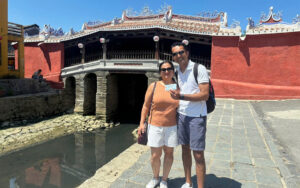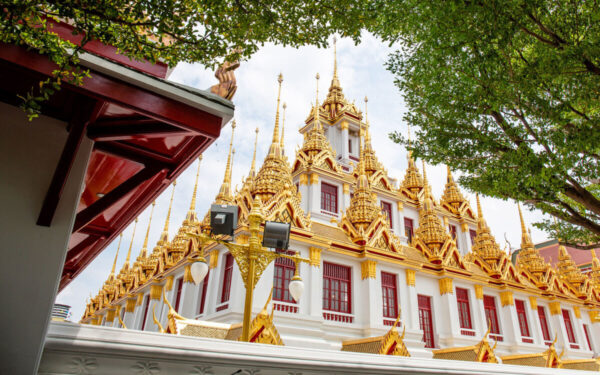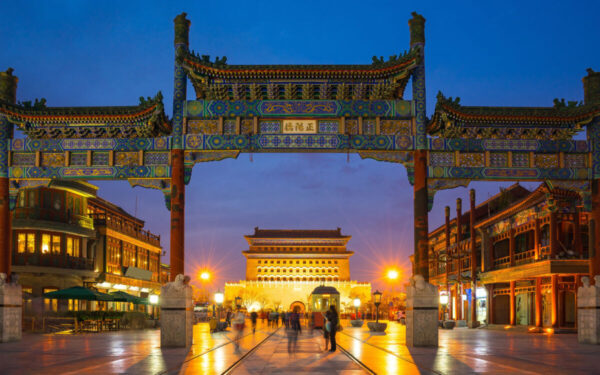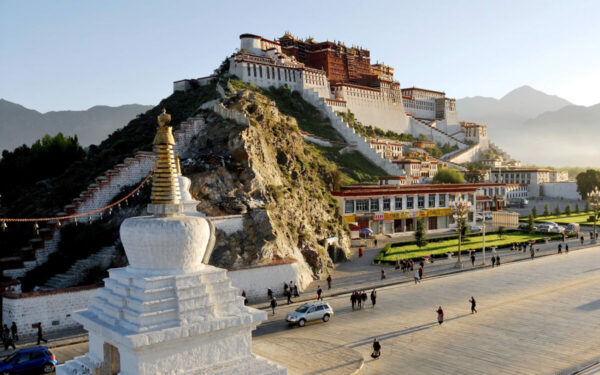Vietnamese last names and surnames are more than just identifiers—they are gateways to understanding Vietnam’s history and cultural diversity
Have you ever wondered what stories lie behind Vietnamese last names and surnames? Beyond being mere identifiers, these names are treasure troves of history, reflecting Vietnam’s dynastic reigns, Confucian values, and cultural resilience. While names like Nguyen dominate global recognition, the tapestry of Vietnamese last names and surnames is far richer and more diverse than meets the eye.
From the enduring legacy of the Nguyen Dynasty to the rare ancient surnames found in ethnic communities, Vietnamese last names offer a unique lens into the country’s identity and evolution. In this article from Asia Legend Travel, we’ll explore Vietnamese surnames common among the population, their origins, significance, and the fascinating tales they hold.
Overview of Vietnamese Last Names and surnames: A Diverse Yet Unified Identity
Vietnamese last names and surnames embody a remarkable cultural tradition. According to PGS.TS Lê Trung Hòa, author of “Họ và tên người Việt Nam” (Vietnamese Names and Surnames), the first comprehensive study published in 1992, Vietnam originally recorded 769 distinct surnames, including 164 associated with the Kinh majority. In the updated 2005 edition, this number increased to 1,020 surnames, with 165 linked to the Kinh people, reflecting Vietnam’s rich cultural and regional diversity.
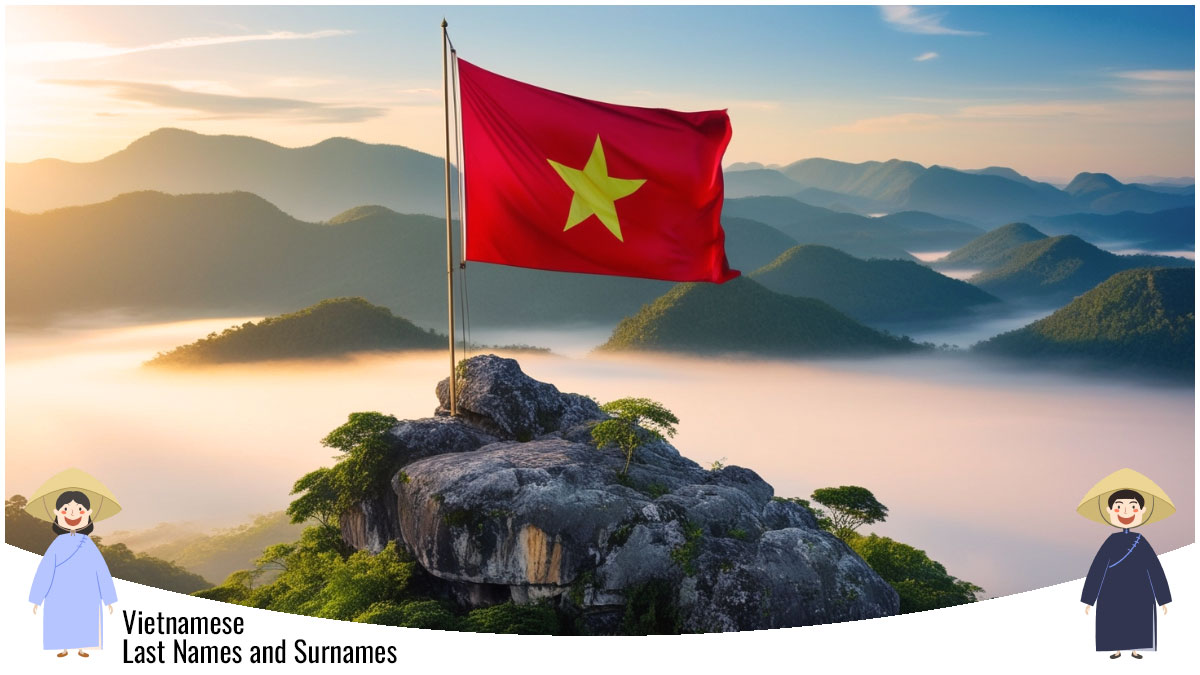
Despite this vast variety, the distribution of surnames remains imbalanced, with a few dominating the population. Nguyen, Tran, and Le are the three most common Vietnamese last names, accounting for approximately 60% of the population. This concentration stems from historical events, dynastic rule, and cultural assimilation, creating both a sense of unity and regional uniqueness.
| Last Name | Percentage of Population | Historical Significance |
|---|---|---|
| Nguyen (Nguyễn) | 40% | Dominant due to the Nguyen Dynasty (1802–1945). |
| Tran (Trần) | 12% | Associated with the Tran Dynasty and its military prowess. |
| Le (Lê) | 9.5% | Reflects Confucian stability during the Le Dynasty. |
| Pham (Phạm) | 7% | Represents noble families and scholars. |
| Hoang (Hoàng) | 5% | Prominent among aristocratic and influential clans. |
| Vu/Vo (Vũ/Võ) | 4% | Common in coastal and rural regions. |
| Dang (Đặng) | 2% | Originates from historical and revolutionary leaders. |
Key Insights from the Data:
- Nguyen (Nguyễn) stands out as the most prevalent surname, appearing in 4 out of 10 Vietnamese households.
- Historical events, such as dynastic rule and migration patterns, have significantly influenced the distribution of these last names.
- Regional surnames like Vu/Vo (Vũ/Võ) and Bui (Bùi) highlight the localized identity within Vietnam’s broader cultural tapestry.
This unique surname structure underscores how history, geography, and cultural values have shaped Vietnamese last names and surnames, creating both unity and diversity across the nation.
The Formation and Evolution of Vietnamese Last Names and surnames
Let’s dive into the fascinating history and evolution of Vietnamese last names and surnames. Understanding these can add depth to any Vietnam tour, connecting visitors with the country’s rich cultural heritage.
Historical Influences: From Dynasties to Confucianism
The formation of Vietnamese last names and surnames is deeply rooted in the nation’s complex history. Under Chinese rule (111 BCE–938 CE), Vietnamese society adopted Confucian ideals and administrative systems, including the use of family names. Initially reserved for the elite and ruling classes, surnames gradually became widespread as dynasties like the Ly, Tran, and Nguyen rose to power. Over time, they evolved into a unifying cultural norm for the general population.
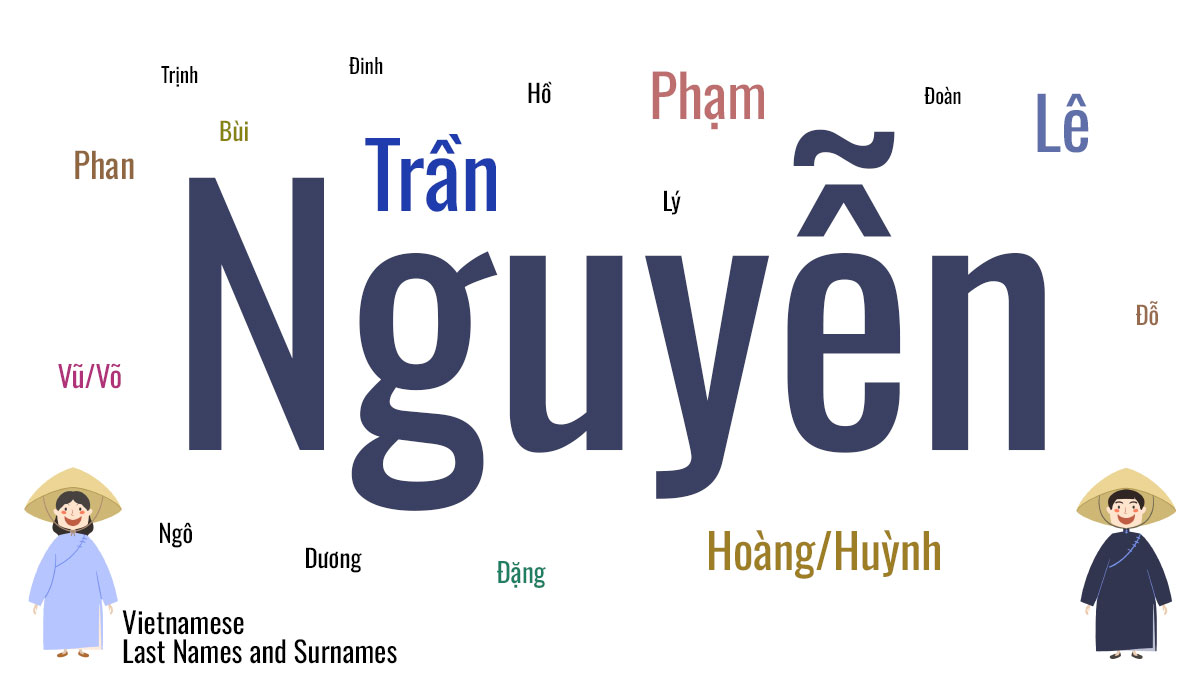
Many Vietnamese surnames, including Nguyen (阮), Tran (陳), and Le (黎), have Chinese origins, showcasing how Vietnamese culture assimilated external influences while preserving its identity.
The formation of Vietnamese last names and surnames is deeply intertwined with the nation’s rich and complex history, shaped by a blend of indigenous traditions and external influences. The most significant turning point in the evolution of surnames came during China’s millennium-long domination of Vietnam (111 BCE–938 CE). This era introduced Confucian principles, bureaucratic governance, and the use of family names, leaving an indelible mark on Vietnamese society.
Expansion During Vietnamese Dynasties
As Vietnam regained independence, starting with the Ngo Dynasty (939 CE), the use of surnames expanded significantly. Dynasties like the Ly (1009–1225), Tran (1225–1400), and Nguyen (1802–1945) sought to unify their populations under Confucian ideals, further promoting the adoption of surnames. The practice moved beyond the elite to include commoners, solidifying surnames as a cultural norm.
Key Developments by Dynasty
- Ly Dynasty: Encouraged surname adoption among administrative officials to reflect loyalty to the emperor. Many bureaucrats of this era took the emperor’s surname, creating familial ties to the court.
- Tran Dynasty: Expanded surname use among the military. Soldiers and generals often adopted the surname Tran to signify allegiance to the ruling dynasty.
- Nguyen Dynasty: Institutionalized surname adoption on a massive scale. The Nguyen emperors distributed land and titles to loyal families, who in turn adopted the imperial surname as a mark of fealty.
The Power of “Nguyen”: A Surname of Emperors
Nguyen is undoubtedly the most famous Vietnamese last name. Curious to learn more about its origins and significance? Let’s dive into the fascinating world of Vietnamese surnames and meanings!
Why Nguyen Dominates Vietnamese lastnames
Today, Nguyen is the first one that comes to people’s minds when it comes to Vietnamese last names common among population. Approximately 40% of Vietnamese people share this surname, making it one of the most common last names in the world. This dominance can be traced back to the Nguyen Dynasty (1802–1945), the last imperial family of Vietnam.
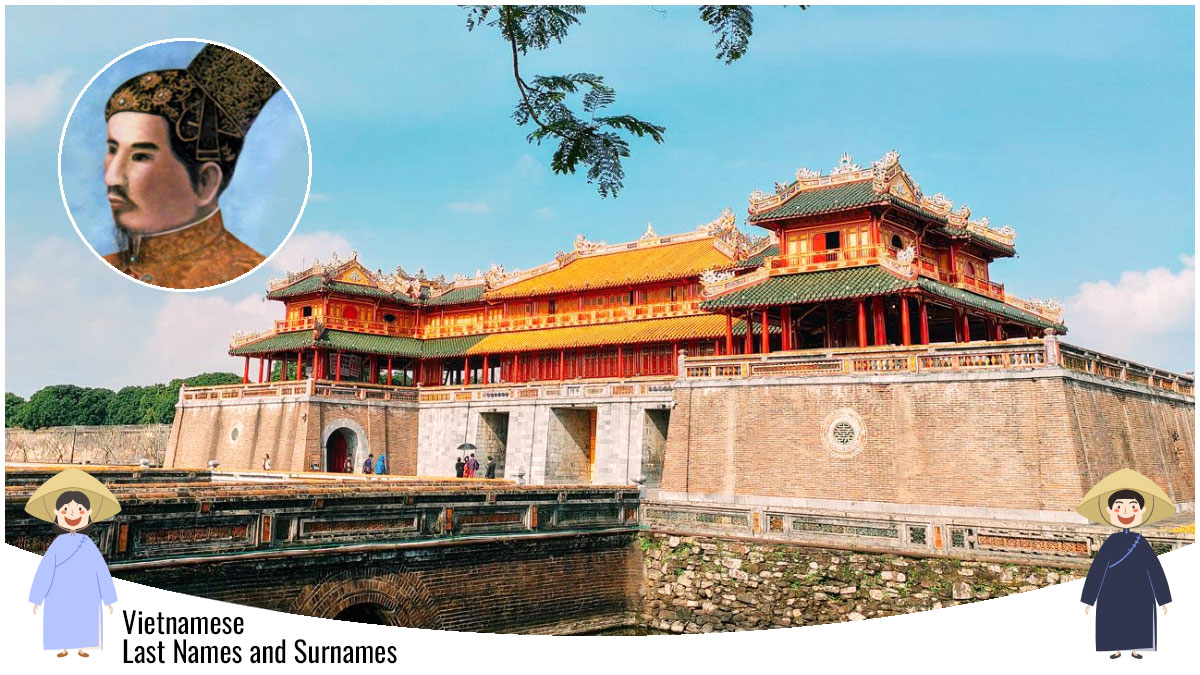
During the dynasty’s rule, allegiance to the emperor often meant adopting the surname Nguyen. Additionally, defeated factions and rebels were sometimes given the surname Nguyen to symbolize their submission.
Fun Fact: Historical records suggest that the Nguyen emperors distributed land and privileges to families loyal to the dynasty, further encouraging the widespread adoption of the name.
Famous Nguyens Around the Globe
The global Vietnamese diaspora has carried the Nguyen surname far and wide. Today, prominent figures with the surname include:
- Dustin Nguyen, a Hollywood actor famous for 21 Jump Street.
- Lee Nguyen, a professional soccer player who has represented both Vietnam and the United States.
These individuals showcase how the Vietnamese last names continue to thrive and influence cultures beyond its homeland.
Beyond Nguyen: Common and Unique Vietnamese last names and surnames
While Nguyen takes the spotlight, Tran, Le, Pham, and Hoang are also famous Vietnamese last names, each representing a slice of Vietnam’s rich history. Understanding these Vietnamese last names and meanings provides deeper insight into the country’s cultural tapestry.
Tran (陳): A Dynasty of Warriors
The Tran surname is associated with the Tran Dynasty (1225–1400), celebrated for its military prowess. The Tran emperors defended Vietnam against Mongol invasions three times, solidifying their legacy as protectors of the nation.
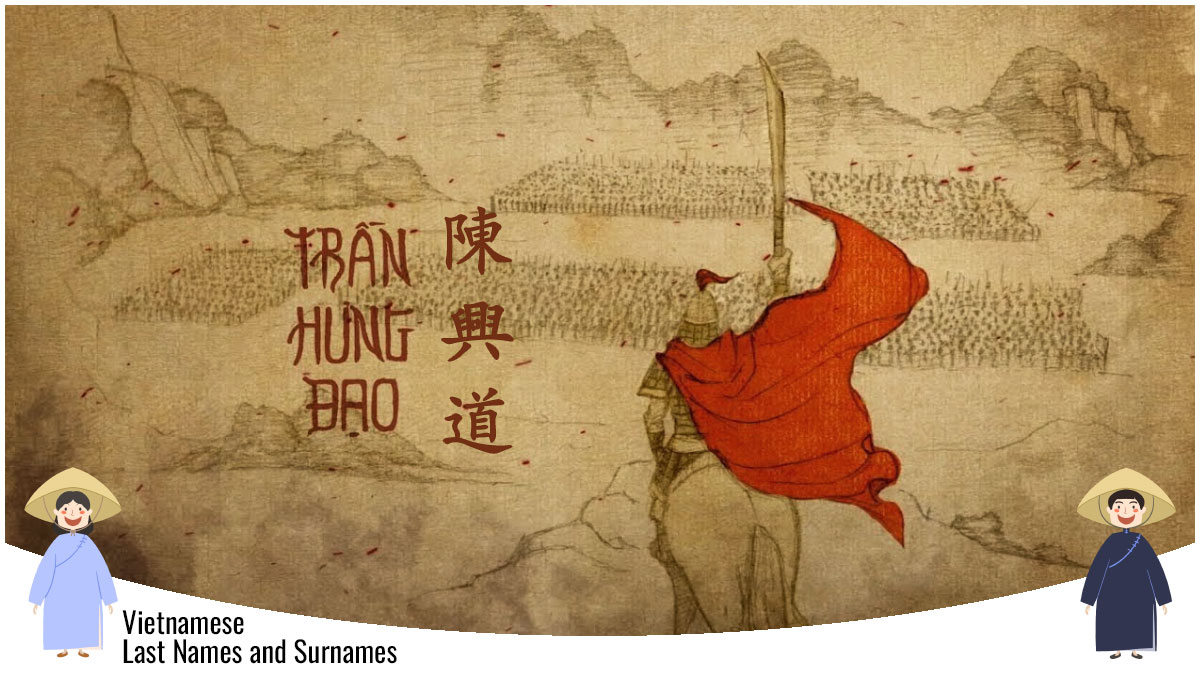
An anecdote from Hanoi: A local historian joked, “Meeting a Tran is like meeting a warrior in disguise. Who knows if they’re a descendant of the great generals who stood against the Mongols?”
Le (黎): The Scholars’ Surname
The Le family name symbolizes stability and scholarship, originating from the Le Dynasty (1428–1789). This dynasty promoted Confucian values, and many Le families are still associated with intellectual pursuits.
Vu/Vo: Names of Coastal Guardians
The surnames Vu and Vo are tied to Vietnam’s coastal regions, where fishing and maritime trade were integral to life. Families with these surnames often hold stories of navigating the seas or defending their villages from invaders.
A fisherman from Ha Long Bay shared: “Our ancestors were known as guardians of the sea. The name Vo is a badge of honor.”
Surnames Among Ethnic Minorities
Vietnam’s ethnic diversity adds unique surnames to the cultural tapestry. For example:
- Nong (Nông): Common among the Tay people, representing educators and leaders.
- Lo (Lò): Found among the Nung, often tied to craftsmanship.
- Giang (Giàng): Popular in the Hmong community, symbolizing a connection to nature.
Vietnamese Last Names Abroad: Evolution and Adaptation
Vietnamese migration, particularly after the Vietnam War, has spread these surnames globally. In Western countries, pronunciation challenges have led to adaptations:
- Nguyen is often pronounced as “Win” or “Wen.”
- Some families have simplified their names to fit local contexts, blending Vietnamese and Western naming conventions.
One Vietnamese-American shared: “I stopped correcting people when they called me ‘Mr. Win.’ It became part of my identity—Vietnamese at heart but American in spirit.”
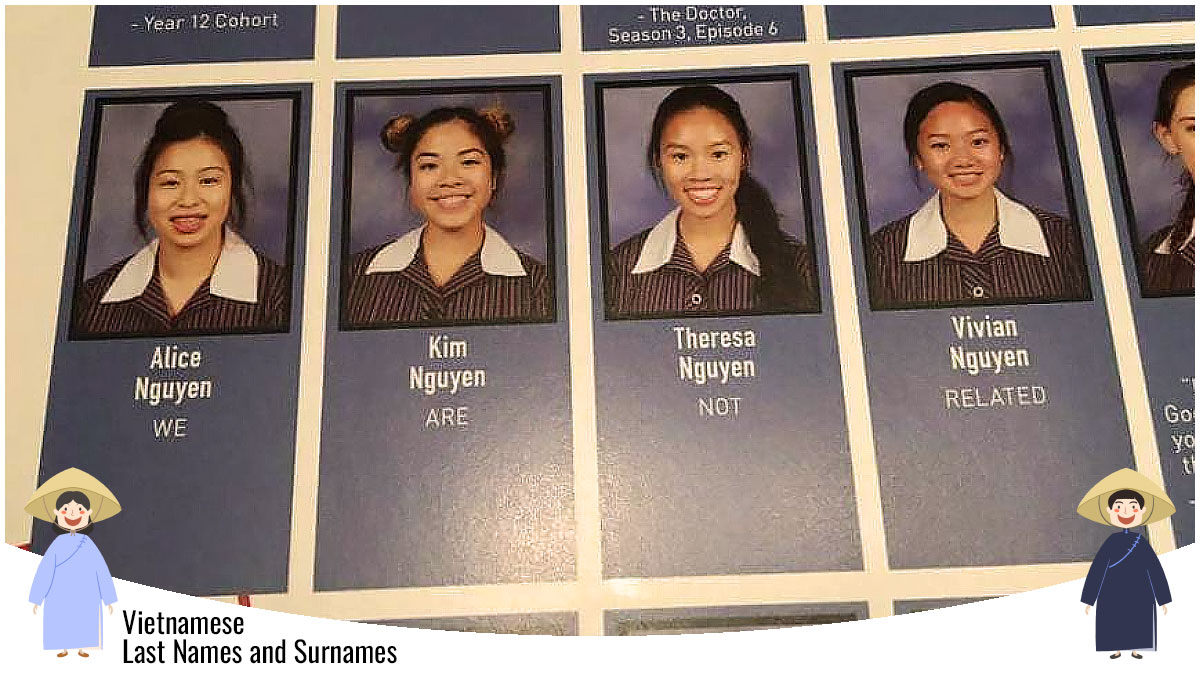
Rare and Oldest Vietnamese last names and surnames
Vietnam’s surname tradition is a rich tapestry of common names like Nguyen and Tran, but among them lie rare and ancient surnames that carry unique legacies and historical depth. Two notable examples are the surnames Ma (Mã) and Ho (Hồ), which not only predate many popular names but also reflect Vietnam’s multicultural exchanges and revolutionary transformations.
The Legacy of “Ma”: Vietnam’s Oldest Last Name
The surname Ma (馬), meaning “horse” in Sino-Vietnamese, is recognized as one of the oldest recorded last names in Vietnam. Its history dates back over 2,000 years, stemming from the early interactions between Vietnam and China during the Han dynasty (206 BCE–220 CE). The name was introduced to Vietnam as a reflection of the cultural and economic significance of horses in ancient societies.
Cultural and Historical Origins
In Chinese and Vietnamese traditions, the horse symbolized strength, mobility, and prosperity, making it an auspicious emblem for families involved in equestrian or trade activities. Families with the Ma surname were often:
- Horse trainers: Renowned for their skills in taming and training horses, essential for military and transportation purposes.
- Horse traders: Involved in the commerce of horses, a valuable resource in ancient economies.
- Cavalry officers: Serving in mounted units, they played critical roles in early military campaigns.
The adoption of Ma as a family name likely originated among these communities, highlighting their contributions to society.
Persistence in Northern Vietnam
Today, the Ma surname remains relatively rare, found primarily in northern Vietnam, particularly in provinces like Cao Bang, Lang Son, and Bac Kan. These areas are home to ethnic minority groups such as the Tay and Nung, who have preserved this ancient surname as part of their cultural identity.
A story from a Tay elder in Cao Bang:
“Our family has carried the name Ma for countless generations. Legend has it that our ancestors were the keepers of royal horses during the Ly Dynasty. They say these horses carried not just warriors but the dreams of our people.”
A Testament to Ancient Cultural Exchanges
The survival of the Ma surname is a testament to Vietnam’s long history of cultural exchanges and its ability to adapt and localize external influences. It stands as a rare relic from a bygone era, connecting the present to the ancient traditions of Vietnam’s northern highlands.
The Historical Significance of “Ho”
The surname Ho (胡), meaning “beard” or “barbarian” in Sino-Vietnamese, carries a rich yet complex history. Its roots trace back over 2,000 years to the Han dynasty, where it was associated with families on the frontier regions of China and Vietnam. Over time, Ho became a symbol of adaptability and transformation, reflecting Vietnam’s evolution as a nation.
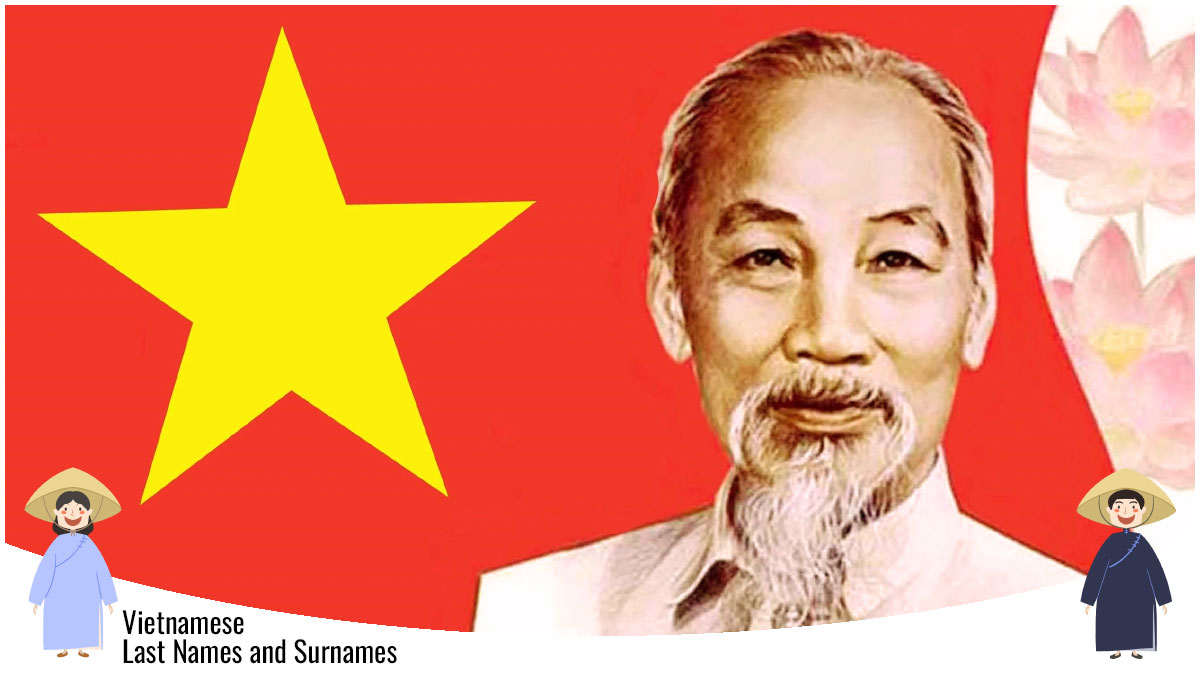
Ancient Origins and Cultural Context
During the Han dynasty, Ho was used as a surname by individuals and clans living in regions of mixed ethnic heritage, particularly along the southern borders of China. The name often denoted families who played intermediary roles in trade and diplomacy between Chinese and local Vietnamese communities. As such, it became a marker of multicultural identity.
Adoption by Revolutionary Leader Ho Chi Minh
The name Ho gained national prominence in the 20th century through its association with Vietnam’s revolutionary leader, Ho Chi Minh. Born as Nguyen Sinh Cung, Ho Chi Minh adopted this surname during his ideological and political journey.
- Symbolic Meaning: The surname Ho symbolized a break from his aristocratic roots as part of the Nguyen family. By choosing a name that connected him to the common people, Ho Chi Minh emphasized unity and humility.
- Historical Legacy: His leadership under the name Ho became synonymous with Vietnam’s struggle for independence and its identity as a united nation.
A notable excerpt from his life:
“When I took the name Ho Chi Minh, I chose to embody not just a leader but the voice of every Vietnamese person who longed for freedom.”
Fascinating Stories of Surnames in Vietnam’s Central Highlands
The Central Highlands of Vietnam, a land of red basalt soil, abundant sunshine, and majestic mountains, is not only famous for its coffee and natural beauty but also for its unique and culturally rich surnames. Surnames like Y, A, or H’ are not merely identifiers but deeply reflect the traditions, customs, and history of ethnic groups such as the Ê-đê, Gia Rai, and M’nông.
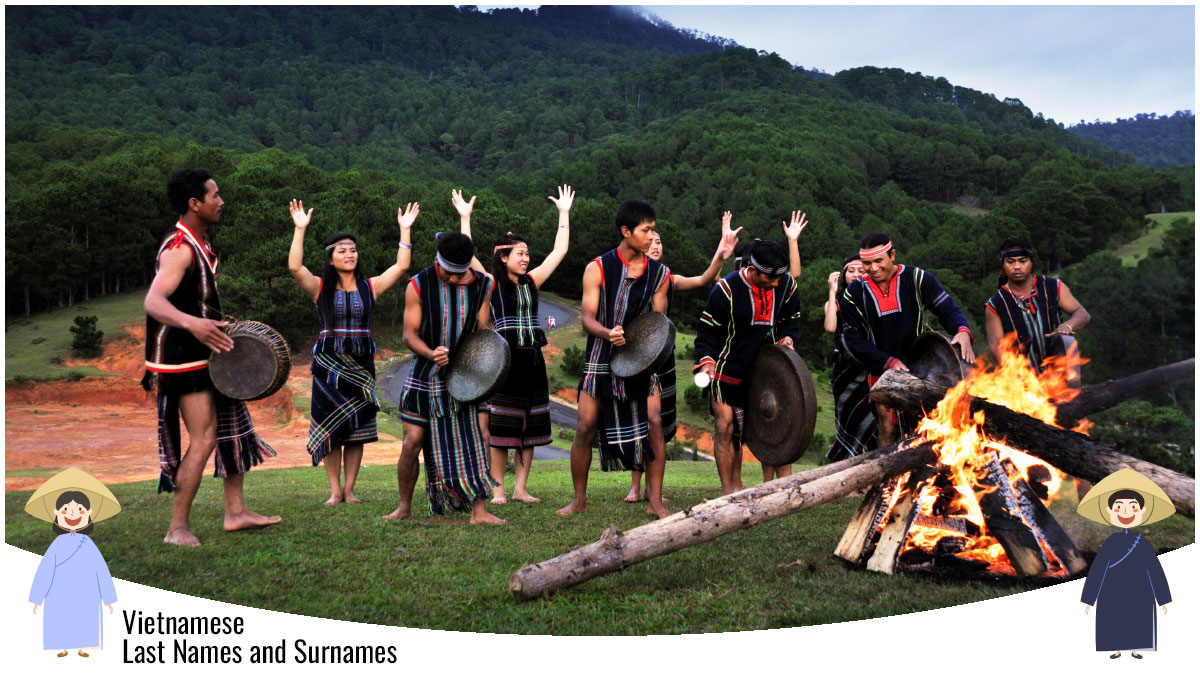
For example, the surname Y is typically used for men, while H’ is reserved for women, representing the matriarchal system of the Ê-đê people. One notable story is about Y Nhien from Buon Ma Thuot, who made his village proud by inventing an intelligent irrigation system for coffee plantations. “My name, Y Nhien, means ‘as steadfast as the mountains,’ and I strive to live up to that meaning,” he shared.
Meanwhile, the surname A is commonly found among the Gia Rai people, symbolizing gratitude to their ancestors. An elder from the A Ma clan recounted their lineage’s origins, tracing back to a wise and courageous leader who defended their land from invaders. “Whenever I think of my ancestors, I feel immense pride and a responsibility to preserve this heritage,” he said emotionally.
Surnames in the Central Highlands are not just personal identifiers but serve as powerful symbols of unity and the sacred traditions of their communities. These stories continue to be passed down from generation to generation, preserving the cultural essence of this vibrant region.
Cultural Significance of Vietnamese Last Names
Vietnamese surnames reflect more than family lineage—they embody societal values, regional identities, and historical legacies.
Confucian Ideals in Naming
Vietnamese last names and surnames align with Confucian values of family unity and hierarchy. Unlike Western cultures, where siblings may have different last names, Vietnamese families traditionally share one surname to represent familial cohesion.
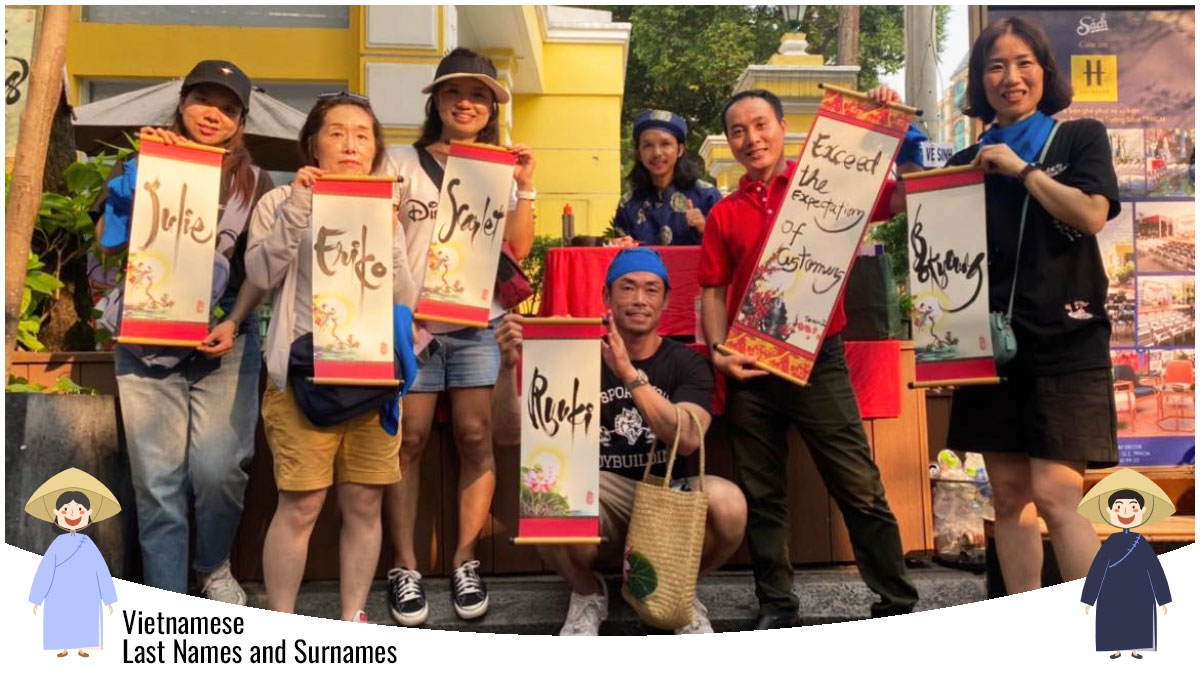
Regional Variations
Certain surnames are unique to specific regions or ethnic groups:
- Coastal areas often feature Doan (Đoàn) and Vu (Vũ) due to maritime heritage.
- Mountainous regions see names like Nong (Nông) and Lo (Lò), reflecting indigenous traditions.
Significance of Vietnamese last names and surnames in the Modern World
Understanding Vietnamese surnames enriches cultural appreciation. Whether it’s the globally recognized Nguyen or the rare and ancient Ma, each surname tells a story of identity, history, and pride. Next time you meet someone with Vietnamese last names and surnames, ask about its history. You might uncover a tale that connects us all.
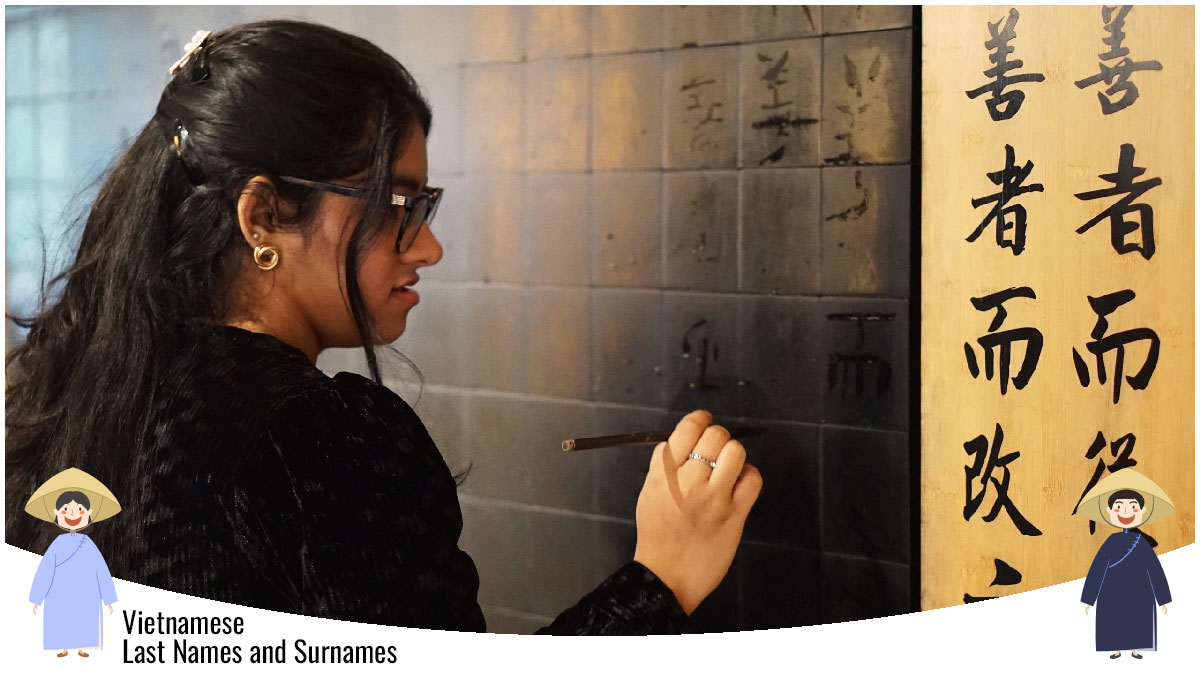
Vietnamese last names and surnames carry deep historical and cultural significance, often serving as a foundation for understanding naming traditions. To delve further into this fascinating topic, explore Vietnamese male names to see how they reflect strength and heritage, or uncover the charm and meanings behind Vietnamese female names that highlight grace and tradition.
The Vietnamese last names and surnames carries centuries of history, symbolizing familial bonds, social structures, and cultural pride. Beyond its role as an identifier, it serves as a living record of Vietnam’s dynasties, migration patterns, and evolving traditions. Names like Nguyen, tied to emperors, showcase power and influence, while regional treasures such as Nong and Lo reflect the vibrant diversity of Vietnam’s ethnic communities. These Vietnamese surnames are not just relics of the past—they are vibrant threads weaving the identity of a modern nation.
So, the next time you encounter someone with Vietnamese last names, consider asking about its origin. You might uncover a fascinating tale that bridges generations and cultures! And if you’re inspired to explore Vietnam’s rich heritage firsthand, consider embarking on a Vietnam 14 day tour to immerse yourself in the country’s diverse landscapes and traditions.
